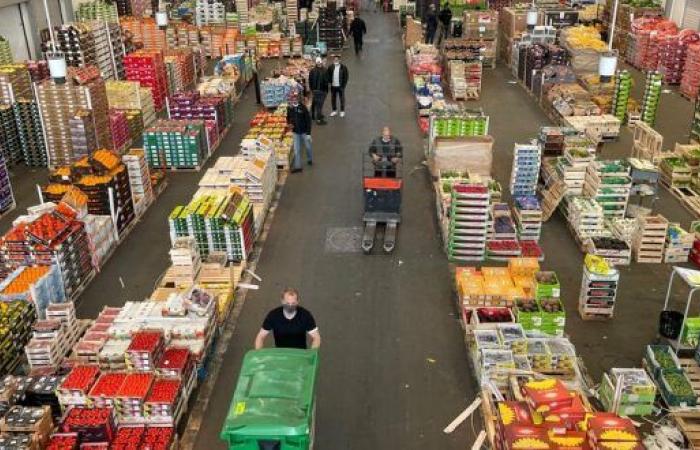The recent devastating floods in Spain, particularly in the Valencia region, are raising fears of disruptions for European consumers, particularly in the supply of fruit and vegetables. A week after this unprecedented disaster which caused more than 200 deaths and ravaged thousands of agricultural hectares, the first impacts on the French market are already beginning to be felt.
Although the French authorities have not yet mentioned a shortage, supermarkets and wholesale markets, such as Rungis, are reporting supply difficulties on certain products, the French media informs us. Europe1. Citrus fruits, in particular, could be the most affected, as the Valencia region, which produces millions of tons of oranges, lemons and other fruits each year, has been severely affected. David Besnard, director of ABCD de l’Exotique, an import-export company in Rungis, confirms that the season is off to a bad start: “The orange harvest is well below the usual volumes, which will inevitably increase prices. price. The little that remains already costs a fortune, and unless there is help from a neighboring country, the final prices are likely to soar. »
The Iberian Peninsula has long been the main supplier of fruits and vegetables to France. On average, Spain exports between 6 and 8 million tonnes of agricultural products each year, a large part of which comes from the Valencia region. According to Marine Raffray, agroeconomist at the Chambers of Agriculture of France, this region also represents “10% of the country’s vegetable production and nearly 20% of its rice production”. Thus, beyond citrus fruits, other products such as cucumbers, salads and Valencian rice could also experience disruptions on the shelves.
Faced with this situation, French distributors are already looking for alternatives to limit the impact on shelves. But temporary solutions, such as importing from other countries or relying on domestic production, risk leading to significant price increases. French producers, although able to partially take over, are unable to cover all demand and are often in a higher price segment than their Spanish counterparts.
The winter months are traditionally the peak period for citrus consumption in France. In this context, the repercussions of this Spanish natural disaster could directly affect French consumers. An inflation in citrus prices is already anticipated by distributors, in particular for oranges, tangerines and lemons.
The consequences of these floods illustrate the extent to which European markets are dependent on agricultural production. The Spanish episode thus raises a broader question: how Europe can ensure its food sovereignty and how the EU as a whole could strengthen its agricultural partnerships with producing neighbors like Morocco.






